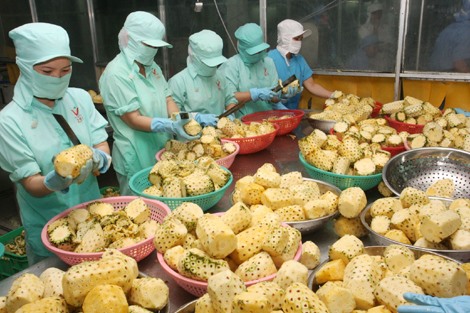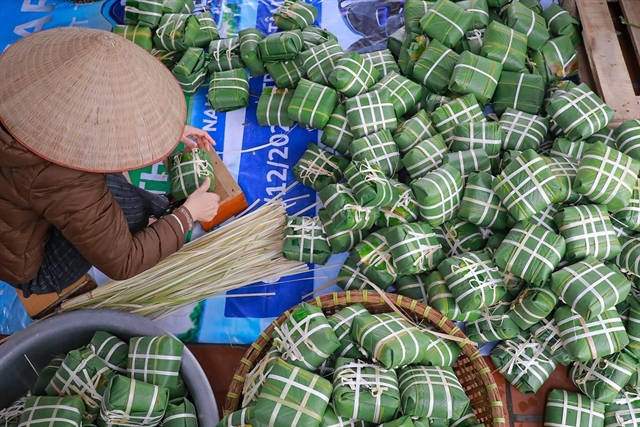 Economy
Economy

Fruit and vegetable exports hit US$186 million in November, bringing the value in 11 months of this year to approximately US$2.2 billion, up from the 2015 record of $1.8 billion.
 |
| Fruit and vegetable exports hit US$186 million in November, bringing the value in 11 months of this year to approximately US$2.2 billion, up from the 2015 record of $1.8 billion.— Photo vccinews.vn |
HÀ NỘI – Fruit and vegetable exports hit US$186 million in November, bringing the value in 11 months of this year to approximately $2.2 billion, up from the 2015 record of $1.8 billion.
Vietnamplus.vn cited statistics from the Ministry of Agriculture and Rural Development as saying that China was the largest market for Vietnamese vegetables and fruits, accounting for 70.4 per cent. It was followed by South Korea with 4 per cent, the US (3.5 per cent), and Japan (3.1 per cent). Meanwhile, Việt Nam spent $814 million on imported vegetables and fruits, mainly from Thailand and China, in the period, up 44 per cent year-on-year.
Earlier, the ministry forecast the export value of domestic fruits and vegetables would likely reach $2.5 billion by the-year end.
According to the ministry, the vegetable and fruit industry grew from exporting $235 million to 36 markets in 2005 to exporting $1.8 billion to 60 markets in 2015.
The export value in 2015 reached a record high of $1.8 billion, 123 per cent higher than in 2014.
Vietnamese exporters have promoted vegetable and fruit exports to both traditional and new markets, including markets with strict rules, such as the US, EU, Japan, South Korea, Canada, Australia and New Zealand.
In order to promote fruit and vegetable exports, Việt Nam should review plans for growing fruit and vegetables for export, suggested the Ministry of Industry and Trade.
Initially, the State would concretise the general plan for agricultural development by 2020 and towards 2030. Under the plan, the development of fruit and vegetables would be implemented closely in advantageous regions with each province developing one or two major types of fruit trees.
Production would be expanded, with the growing of some trees to meet the demands of importers and also provide material for export processing factories. -VNS




